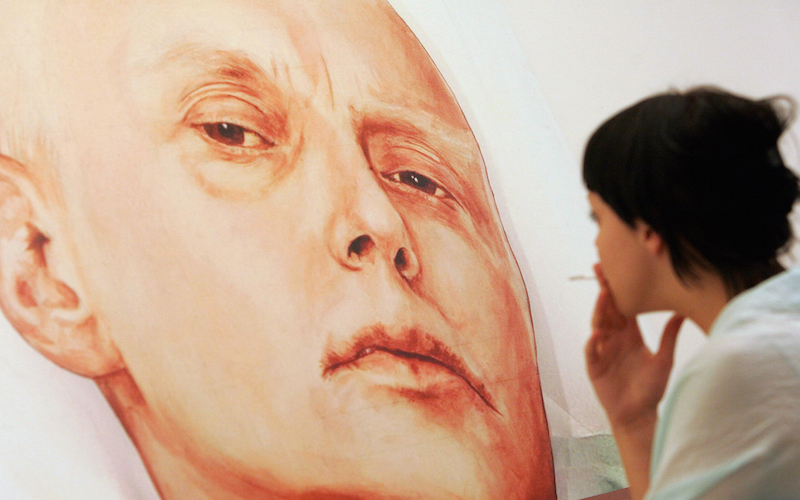
London’s Playground of Spies: The Mysterious Case of Murder, Tea and Cold War Espionage
The death of Alexander Litvinenko almost ten years ago exposed one of the most sophisticated espionage cases carried out on UK soil. A six-month inquiry into the poisoning of Litvinenko revealed this month that Russian President Vladimir Putin “probably” approved the lethal radioactive poisoning of Litvinenko in London in 2006 and there is a “strong possibility” that two Russian agents were ordered by the state to carry out the killing. The public inquiry only confirmed what was already suspected. The two Russian agents were Andrei Lugovoi and Dmitry Kovtun. The capital became a forensic crime scene after a radioactive trail was discovered across the city. It amounted to “a miniature nuclear attack on the streets of London.”
Sir Robert Owen, the inquiry chair, found that together with the “strong circumstantial evidence” heard in open court and the “considerable quantity” of secret intelligence that was not disclosed in open court “ the FSB operation to kill Mr. Litvinenko was probably approved by [Nikolai] Patrushev [head of the security service in 2006] and also by President Putin.” It was “entirely possible” that Lugovoi had been targeting and planning to kill Litvinenko since 2004. Soon after Litvinenko died and Lugovoi had returned to Russa, Putin promoted the agent to MP with the Liberal Democratic Party of Russia giving him parliamentary immunity and signaling “that the Russian state approves of Mr. Litvinenko’s killing, or at least that it wishes to signal approval for it.” The two Russians have denied any involvement with Litvinenko’s murder, but as Owen notes, refused to appear by video to give evidence. Russia has repeatedly rejected requests for their extradition.
The investigation into Litvinenko’s murder was one of the most extensive in British criminal history. Those involved have been meticulous in trying to discover the truth.
The momentum was started after Scotland Yard’s evidence, published last year in a public inquiry, included forensic reports, a “radiation schedule,” phone records CCTV footage, testimony from 62 witnesses, and substantial secret intelligence material. The poison used to kill Litvinenko was a radioactive isotope.
Litvinenko died after he drank tea laced with a fatal dose of polonium-210 during a meeting on 16 October 2006 with suspects Kovtun and Lugovoi. Polonium-210 is highly toxic and caused a massive potential public health risk after detectives found 40 contaminated sites across the city.
After ingesting the poison it took more than three weeks for Litvinenko to die. On his deathbed, Litvinenko gave his last testimonial against the state accusing Putin of his own murder. In many ways Litvinenko solved his death.
The very use of such a toxin led directly to Russian state involvement. The toxin is extremely difficult to obtain, even more so in the amount that was used to kill Litvinenko as it requires a nuclear reactor to make, and Russia has been the main producer over the last few years. Additionally, polonium is prohibitively expensive– a gram costs around $2 million and is extremely difficult to handle. It would not be logical to assume ordinary criminals would be able to use the weapon. And since access to the poison is only given by permission of the state, the inquiry implicated Putin in the murder of Litvinenko.
Litvinenko may be the first high profile case of state-sponsored assassination of a British citizen to attract international press coverage, but Putin’s revenge politics has long extended into the UK. The Kremlin’s toxic reach into the capital has borne a string of unsolved murders making it one of the most dangerous places for enemies of the state. Berezovsky died in mysterious circumstances in Surrey in 2013 as did his business partner, Badri Patarkatsishvili, who died in February 2008 and Alexander Perepilichny, who was helping to investigate corrupt tax officials in Moscow, died after he was poisoned by a toxin favored by Russian agents. Yuri Felshtinsky, a historian and co-author of Blowing Up Russia, argues that London is no safe haven for Russian dissenters. Felshtinsky observes that “the fact that somehow you are able to organize a killing of a person in London and for this to go unpunished is a bad indicator, it creates a culture of impunity.” It sends a clear message: no one is far from Putin’s killing orders.
His book accused the FSB of carrying out a state-sponsored terrorist attack against his own people, blowing up a Moscow apartment that killed 300 people in order to justify the war against Chechnya. Owen’s report revealed that MI6 saw the book as one of two red lines that Litvinenko crossed that provoked the Russian state. The others were his allegations online in July 2006, four months before he was murdered, that Putin was a pedophile. The book is so vilified by the state that it was added to Russia’s list of extremist material, which immediately restricted its access to anyone in Russia and imposed severe penalties for anyone found in possession of a digital copy. Felshtinky lived because he was not seen as a traitor by the state, as an author he was exempt, but Litvinenko was a former spy committing the ultimate betrayal. He was also working with MI6, and keeping company with well known critics of Putin, including Berezokvsky and the exiled Chechen leader, Akhmed Zakayev.
Litvinenko gained British citizenship just before he died, which puts even more pressure on David Cameron to react decisively to state-sponsored assassination of a UK citizen. In response to the findings, Marina Litvinenko, Alexander’s widow, called for the UK to impose sanctions against Russia. There are already measures being taken including expelling four embassy officials, tighter visa controls on diplomatic staff and limiting cooperation with the FSB.
In the last few years, European states and the US administration have moved to punish Russian officials found to be connected to criminal activity and human rights abuses. In 2012, the Obama administration enacted the Sergei Magnitsky Act in response to the death in 2009 of Sergei Magnitsky, a Russian human rights lawyer, after he was jailed on false corruption charges. Magnitsky investigated corruption at the heart of the Russian state, uncovering large-scale theft of state funds by high ranking officials. The Act allowed the administration to enforce asset freezes and visa bans for 30 Russian officials. There have been several European parliament resolutions attempting to introduce these measures for the EU.
However, while Downing Street called the findings “extremely disturbing” they will not be extending sanctions against Russia, stressing the need to measure any response with the greater importance of working with them in the global fight against ISIS. Theresa May, UK home secretary, argued that the Magnitsky Act has limited use in Litvinenko’s case as she already has the power to impose travel bans, but it is difficult to do for heads of state. May has said she will request Interpol to issue European arrest warrants for Andrei Lugovoi and Dmitry Kovtun and freeze their assets, but she proposed no wider action against the Russian state.
Lamenting May’s reserved response, Andy Burnham, shadow home secretary, responded it did not “go anywhere near enough in answering the seriousness of the findings” and “could send a dangerous signal to Russia that our response is too weak,” further arguing that the report itself was “one of the most shocking and disturbing reports ever presented to parliament.” He called for the expulsion of Russian intelligence agents and banning Russia from staging the 2018 World Cup. Scottish National Party’s Peter Grant pushed for tougher action: “The report I think leads to only one possible conclusion – we now have to regard the Russian government, the Russian state, as an organization actively involved in the commission, funding, supporting and directing acts of terrorism against UK citizens within the United Kingdom.”
National security will take precedence and Russia knows this. Maria Zakharova, a spokeswoman for the Russian foreign ministry, said: “We regret that a purely criminal case has been politicized and has darkened the general atmosphere of our bilateral relations.” Owen’s findings, unsurprising as they are, will be a diplomatic headache for the British government at such a sensitive time. Syria, Ukraine, Iran denuclearization and the world economy will take priority. It simply is not in Britain’s interests to rock delicate diplomatic relations with Moscow. As Litvinenko lay dying in hospital, he predicted with uncanny foresight that pragmatic political considerations might interfere with getting justice in his case. Indeed, we only know all the details surrounding his death because the UK government lost a high court case opposing it after Theresa May turned down Marina Litvinenko’s request for a public inquiry citing “international relations.”
Domestically, the current state of affairs signals a disastrous turn away from democracy in Russia. State persecution against journalists, entrepreneurs and political dissidents, means that freedom of expression will never truly prosper and the rule of law will lie tattered and brutalized on the corrupted ground of the Kremlin. Devoid of basic democratic principles and rights, Russia’s nationalism is suffocating civil society.
The public inquiry now ends a decade-long murder mystery of cold war-style recrimination. Owen’s meticulous 328-page report is not just one that seeks justice for Litvinenko’s wife Marina, but epitomizes a far more important point, that of promoting, securing and protecting the rule of law across all political cultures. Checks and balances are the necessary routes to fairness and justice and ultimately ensure that our human rights are not encroached upon. What we can rely on is that investigative journalism, innovation and ideas will continue to hold the state and its agents to account. Every action of a government has consequences. Russia is no exemption and will have to confront the rumblings of a civil society ready to level the state.

